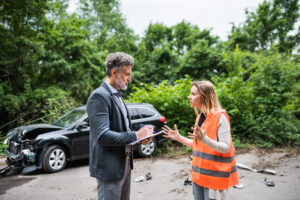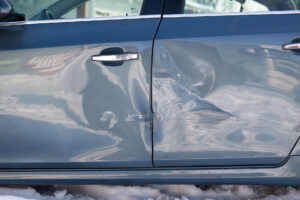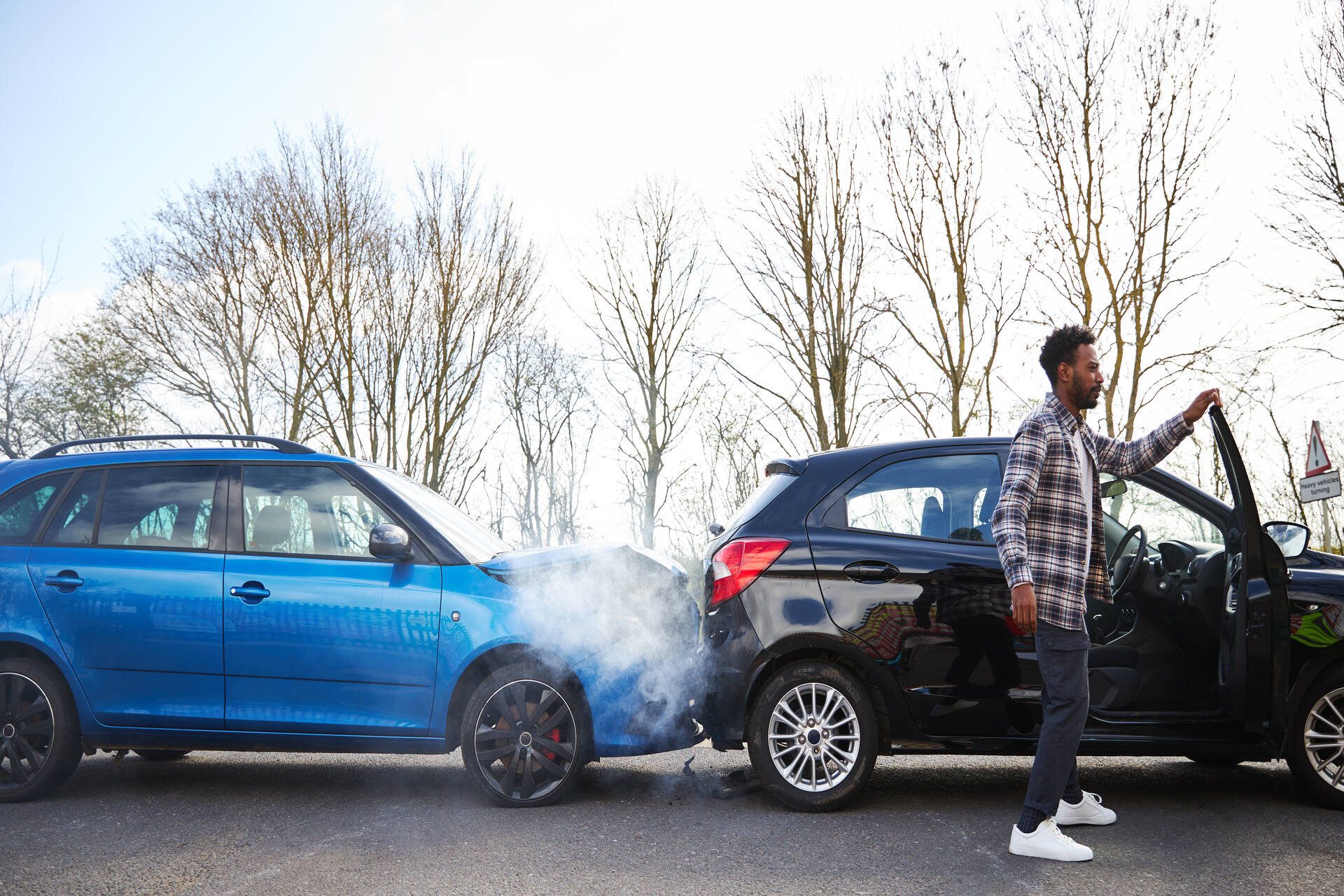 The sound of twisting metal, the jolt, the sudden stop. In an instant, the normal rhythm of your day is shattered. You are sitting in the wreckage on a busy Savannah street, disoriented and in shock.
The sound of twisting metal, the jolt, the sudden stop. In an instant, the normal rhythm of your day is shattered. You are sitting in the wreckage on a busy Savannah street, disoriented and in shock.
The moments that follow are a blur of confusion and adrenaline. But what you do right here, right now, on the pavement, will set the stage for the entire battle to come.
The steps you take immediately after an accident in Savannah, GA, are not just procedural; they are the first moves in a fight to protect your future. While the other driver’s insurance company already has a team preparing to dismantle your claim, you are alone.
Your actions in the next hour will either build your fortress of evidence or hand them the ammunition they need to deny you justice.
Key Takeaways
- Prioritize your safety. Move to a safe location if possible, and check yourself and your passengers for injuries.
- Always call 911. A police report is the most critical piece of objective evidence you can have, and paramedics need to evaluate you for injuries that adrenaline may be hiding.
- Use your smartphone to document everything: photos of all vehicles, the surrounding scene, your injuries, and the other driver’s information.
- Never admit fault or apologize. An insurance company can use a simple “I’m sorry” as an admission of guilt.
- Seek a thorough medical evaluation at an emergency room or urgent care center immediately, even if you feel you are not seriously injured.
First Move: Secure the Scene and Call 911
Before you do anything else, take a breath and assess your physical condition. Are you in severe pain? Are you bleeding? If you are seriously injured, stay put and wait for help to arrive. Do not try to be a hero. Your health is paramount.
If you are not seriously injured and your vehicle is in a dangerous spot, like an active lane on I-16 or the Truman Parkway, and it is safe to do so, move it to the shoulder. Turn on your hazard lights to warn other drivers.
However, if the vehicles are inoperable or if moving them would be unsafe, leave them where they are. Preserving the accident scene is important, but not at the risk of another collision.
Your next action is non-negotiable: Call 911 immediately.
Some drivers, especially those who know they are at fault, will try to convince you to handle things without the police.
They will say, “Let’s just exchange insurance information, it will be easier.” This is a trap. Do not fall for it. Calling 911 accomplishes two critical objectives:
-
- It summons medical help. Paramedics can provide immediate aid and evaluate you for injuries you may not even be aware of due to shock and adrenaline. A refusal of medical treatment at the scene is something insurance companies love to see.
- It generates a police report. A responding officer from the Savannah Police Department or Chatham County Police will create an official, impartial report of the incident. This document is the cornerstone of your personal injury claim.
Step 2: Gather Evidence at the Scene
While you wait for the police to arrive, your smartphone becomes the most powerful tool you have. The evidence you gather in these first few minutes can be the difference between a strong claim and a denied one.
Be methodical. You are now an investigator, and your job is to capture the truth before it disappears. Take more photos and videos than you think you need. You cannot come back later to recreate the scene. Capture every angle and detail you can think of.
- All vehicles involved: Take wide shots showing the final resting position of all cars. Then take close-up shots of the damage to every vehicle, not just your own.
- The surrounding scene: Photograph skid marks on the pavement, any debris from the collision, traffic signs or signals, and the road conditions.
- License plates and VINs: Get clear pictures of the license plates of all vehicles. If possible, also get a photo of the Vehicle Identification Number (VIN) on the dashboard.
- The other driver’s information: Take photos of the other driver’s license, insurance card, and vehicle registration. This prevents them from giving you false information.
- Your visible injuries: Document any cuts, bruises, or scrapes you have. These injuries heal, and photos provide a timestamped record of your immediate physical harm.
If there are witnesses who saw what happened, get their contact information. Independent witnesses are invaluable because they have no financial stake in the outcome.
Get their full name and phone number. Ask them if they would be willing to give a brief recorded statement on your phone of what they saw. A neutral witness who says, “I saw the other car run the red light,” can destroy an at-fault driver’s false story.
Step 3: What to Say (and Not Say) After a Wreck
The conversations you have at the accident scene are a minefield. The other driver and, later, their insurance company, will be listening for any word they can twist to their advantage. You must be disciplined in what you say.
Never, ever admit fault
In the chaos of a crash, it is a natural human impulse to say, “I’m so sorry,” even if the accident was not your fault. You might be sorry that it happened or sorry that people are hurt. Do not say it.
An insurance company will strip those words of their context and present them as a clear and definitive admission of legal guilt.
The danger of “I’m Okay”
The police officer and paramedics will ask you if you are injured. Your adrenaline is pumping, and you might not feel the full extent of your injuries yet. The temptation is to say, “I think I’m okay.” This is a mistake.
Instead of declaring yourself uninjured, be specific and honest about what you are feeling. “My neck is stiff.” “My head hurts.” “My back feels sore.” And most importantly, state that you want to be evaluated by a medical professional.
This creates a record that you were experiencing symptoms at the scene, which directly counters the inevitable insurance company argument that your injuries must have happened sometime after the accident.
Step 4: Seek Immediate Medical Attention
Even if you feel you can walk away from the accident, you must seek a professional medical evaluation on the same day. If you are not taken from the scene in an ambulance, have a friend or family member drive you to an emergency room or an urgent care clinic.
Follow through with all medical advice. If a doctor tells you to rest, see a specialist, or attend physical therapy, you must do it. Failing to follow your treatment plan is another excuse the insurer will use to argue that you are not as injured as you claim or that you failed to mitigate your damages.
Step 5: Report the Accident
In Georgia, you are legally required to report any accident that results in injury, death, or property damage that appears to be $500 or more. As stated in O.C.G.A. § 40-6-273, you must “immediately by the quickest means of communication give notice of such accident” to the local police.
Calling 911 from the scene fulfills this duty. You also have a contractual duty to notify your own insurance company about the accident in a timely manner. When you call them, stick to the basic facts: who was involved, where and when it happened, and the police report number.
Do not give them a lengthy, detailed statement. And if they ask to record you, you have the right to decline until you have spoken with an attorney. Even your own insurance company may look for ways to limit its liability, especially in cases involving uninsured or underinsured motorists.
Why This Hour Is a Legal Battleground
 It may feel like a chaotic, personal tragedy, but you must understand that from the moment of impact, it is also a legal and financial event. The other driver’s insurance company has a team that is activated immediately.
It may feel like a chaotic, personal tragedy, but you must understand that from the moment of impact, it is also a legal and financial event. The other driver’s insurance company has a team that is activated immediately.
They have investigators, adjusters, and lawyers who handle thousands of these cases a year. They have a playbook, and it starts with controlling the evidence and the narrative from the very beginning.
Every step you take at the scene is a countermove to their strategy.
- Calling 911 prevents them from controlling the story.
- Taking photos prevents them from disputing the facts.
- Getting witness info prevents them from claiming no one saw what happened.
- Seeing a doctor prevents them from denying your injuries.
- Refusing to admit fault prevents them from using your own words against you.
You are not just cleaning up a mess. You are laying the foundation for the fight to come. You are showing them that you will not be an easy victim.
FAQ for the Immediate Aftermath of a Savannah Accident
What if the other driver flees the scene?
A hit-and-run is a crime. Your first priority is to try to remember as much as you can about the other vehicle: the make, model, color, and license plate number (even a partial plate is helpful). Give this information to the police immediately. Your claim may then proceed through your own insurance policy’s Uninsured Motorist (UM) coverage, which is why it’s so important to have.
I think I am partially at fault. Should I still follow these steps?
Absolutely. Georgia’s comparative fault rules mean you can still recover compensation as long as you are less than 50% at fault. Never assume you are at fault at the scene. You do not have all the facts. Let a full investigation determine legal fault. Follow every step to protect whatever rights you do have.
What if my accident happened on private property, like a parking lot?
You should still call the police. While they may be less likely to write a full report for an accident on private property, they can still create an official incident report, which is valuable. Additionally, document everything with photos and get witness information, as the property owner’s surveillance cameras may have captured the event.
The other driver seems nice and is very apologetic. Can I trust them?
No. People often change their story once they speak to their insurance company. A driver who is apologetic at the scene can later claim you were the one at fault. Be polite but professional. Rely on the official police report and your own documentation, not on the other driver’s word.
Should I post about my accident on social media?
Absolutely not. Do not post anything about your accident, your injuries, or your emotional state online. Insurance companies hire investigators to scour social media for any post they can take out of context to argue that you are not truly injured. The safest move is to stay completely silent online until your case resolves.
What should I do if the other driver’s insurance company calls me?
You have no legal obligation to speak with the at-fault driver’s insurance adjuster. It is their job to get you to say something that minimizes their company’s liability.
Be polite but firm. State that you are not prepared to give a statement and will have your attorney contact them. Anything you say to them, especially if recorded, an insurer can use against you.
The police did not come to the scene of my accident. What now?
If an accident is minor or on private property, the police might not respond. If this happens, you must still document everything yourself. Take extensive photos, exchange information with the other driver, and get contact details for any witnesses.
You can also file your own report with the Georgia Department of Transportation to create an official record of the incident.
How soon after a Savannah car accident should I contact a lawyer?
You should contact a lawyer as soon as possible after addressing your immediate medical needs. Critical evidence can disappear quickly, and witness memories fade.
An attorney can immediately begin investigating your case, preserving evidence, and handling all communications with the insurance companies to protect you from their tactics from day one.
The Fight Starts Now. You Need a Fighter.
The steps you take in the first hour after a wreck in Savannah are your first line of defense. But the fight is just beginning. The insurance company is already preparing to deny, delay, and devalue your claim. They have a team of professionals on their side. You need one on yours.
At Jamie Casino Injury Attorneys, we were built for this fight. We stand up to the insurance giants and their bullies. We are the voice for the injured, the shield for the wronged, and the hammer that demands justice. We know their tactics, and we know how to beat them. Your fight is our fight.
If you have been hurt in an accident, do not wait for the insurance company to make the next move. Take control. Contact our Savannah office today at (912) 355-1500 for a free, no-obligation case review. We will listen to your story, answer your questions, and tell you how we will fight for you. You pay nothing unless we win your case.

